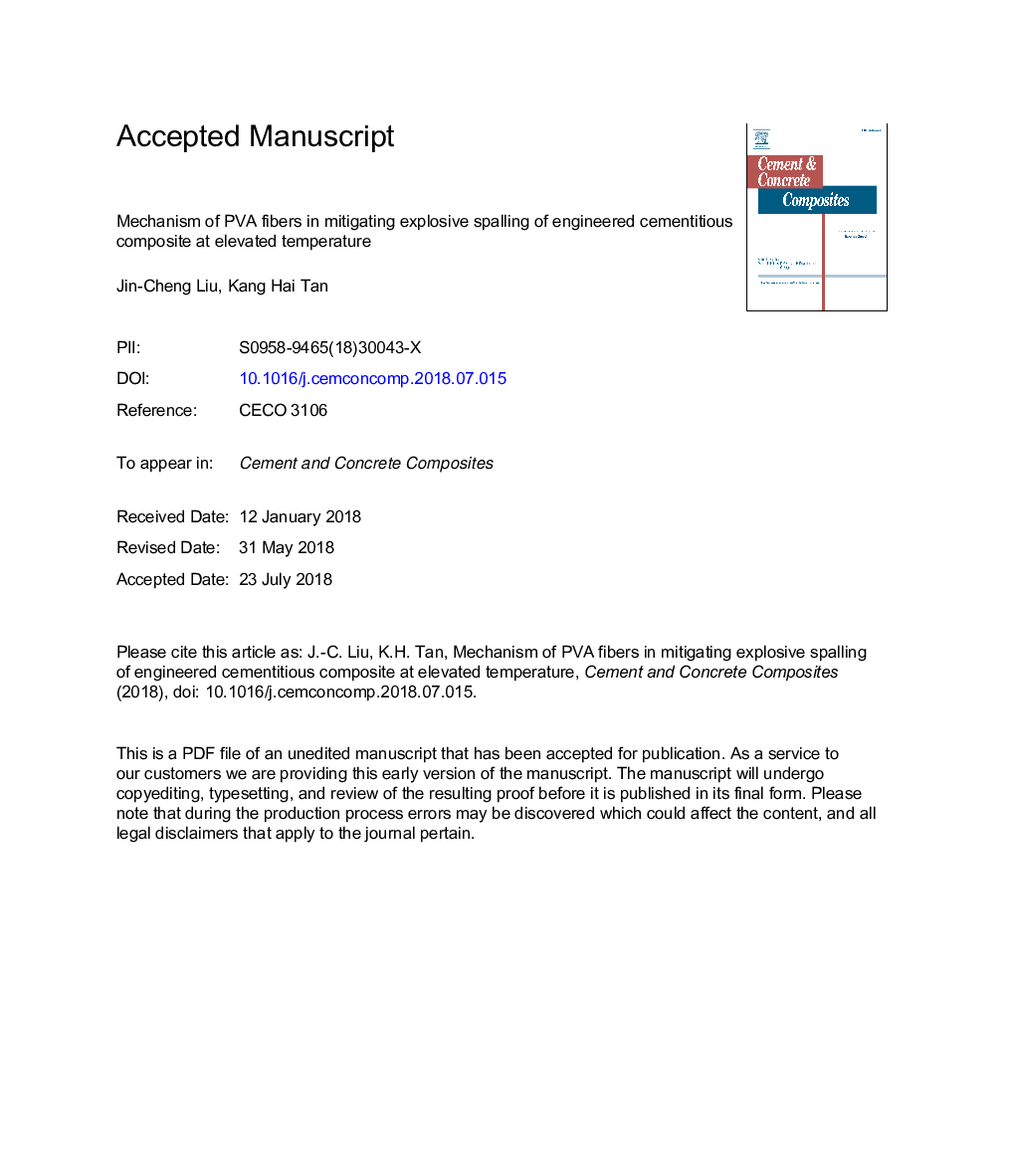| Article ID | Journal | Published Year | Pages | File Type |
|---|---|---|---|---|
| 7883451 | Cement and Concrete Composites | 2018 | 46 Pages |
Abstract
Polyvinyl alcohol (PVA) fibers have been found effective in preventing explosive spalling of engineered cementitious composite (ECC) under fire loading. However, the fundamental mechanism of minimizing the spalling risk by adding PVA fibers remains unclear. Thus, this paper addresses the mode of action of PVA fibers in combating explosive spalling of ECC at high temperature. In this regard, hot permeability of ECC and mortar was measured. PVA fibers were found to increase hot permeability of ECC significantly before their melting. Microstructure and EDX analysis were conducted to achieve a better understanding of how PVA fibers actually function to increase hot permeability before melting. The enlarged empty zones around the PVA fibers were the reason for the significant increase in permeability. Residue from melted PVA fibers was observed on the channel walls and did not diffuse into the matrix. For the first time laser distance meter was used to record progressive spalling history in heated samples. An in-depth discussion on the relationship between temperature, pore pressure, and spalling was also provided.
Related Topics
Physical Sciences and Engineering
Engineering
Industrial and Manufacturing Engineering
Authors
Jin-Cheng Liu, Kang Hai Tan,
